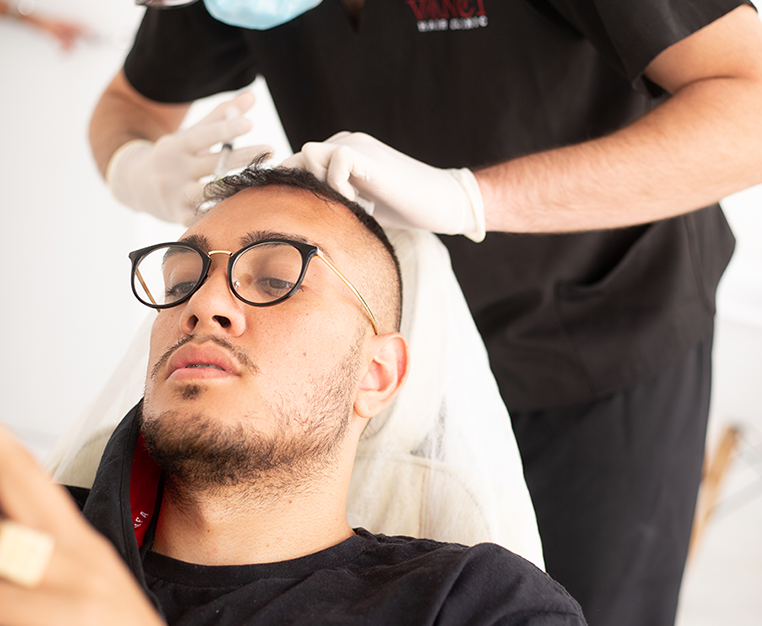Hair loss isn’t just about age—it’s about timing. If you’ve been wondering whether you’ve missed your window for a hair transplant, the short answer is no. The real question isn’t how old you are, but whether your hair loss has stabilised and if you have enough donor hair left. Let’s clear up the confusion and get straight to the facts.
Is Age Even a Factor?
The short answer: not really. Age isn’t the main thing that determines whether you’re a good candidate for a hair transplant. What matters most is the stage of your hair loss and your overall health. Here’s why:
- It’s All About Hair Loss, Not Age
You could be in your 50s, 60s, or even older, and still have plenty of success with a hair transplant—provided your hair loss has stabilised and your donor area (the back and sides of your head) is strong. Surgeons focus on how predictable and stable your hair loss pattern is, not just your age.
- Younger Isn’t Always Better
It’s easy to think that younger patients have the upper hand, but that’s not always the case. If you’re in your 20s or 30s and your hair loss is still progressing, a transplant could backfire. You might end up with a great look now, but as your natural hair continues to thin, those transplanted hairs could end up standing out. For younger patients, it’s often better to wait until hair loss has stabilised.
- Health Becomes More Important with Age
As you get older, health issues like poor circulation or slower healing might come into play. While these don’t automatically rule you out for a transplant, they’re definitely something your surgeon will consider. If you’re in good health, age won’t be much of a factor. But if there are underlying health conditions, you’ll need to work with your doctor to make sure your body is ready for the procedure.
Who’s an Ideal Candidate?
- You Have a Strong Donor Area
A hair transplant doesn’t create new hair—it moves what you already have. If the back and sides of your head still have good density, you’ve got the foundation for a successful procedure. But if your donor area is too sparse, getting full, natural-looking coverage might not be possible. In those cases, other solutions may work better. - Your Hair Loss Is Stable
Timing is everything. If your hair is still actively thinning, a transplant might not give you the lasting results you want. That’s because while transplanted hair is permanent, the surrounding native hair could keep falling out, leaving gaps over time. That’s why top surgeons assess whether your pattern has stabilised first. - You’re in Good Health
A hair transplant is a minor procedure, but healing matters. Conditions like uncontrolled diabetes, autoimmune disorders, or chronic scalp issues can make healing tougher and affect the final outcome. If you’re in generally good health and your scalp is in good shape, you’ll recover faster and see better results.
Alternatives to a Hair Transplant
Even if you’re not the ideal candidate for a hair transplant, don’t worry—you still have options. Procedures like micro scalp pigmentation (MSP) and PRP therapy can help enhance your look and improve the appearance of your hair.
Micro Scalp Pigmentation (MSP) creates the illusion of a fuller head of hair by applying natural-looking pigment to your scalp. This non-invasive treatment can add density and make thinning areas less noticeable, giving you the appearance of a full, healthy head of hair. It’s a great option for those who aren’t ready for surgery or for those who want to enhance the results of a transplant.
PRP Therapy, on the other hand, uses your own platelets to stimulate hair growth and strengthen existing follicles. This treatment can slow down hair loss, improve hair texture, and even promote regrowth, making it a solid alternative if you’re looking for a less invasive route.
The Right Time to Take Action
The best time for a hair transplant isn’t based on age—it’s based on your personal hair loss journey. If you’re thinking about it, the next step is getting expert advice. Vinci Hair Clinic specialises in customised solutions that restore hairlines and confidence.
You don’t have to wonder if it’s too late. Book a consultation today and get answers tailored to you.



